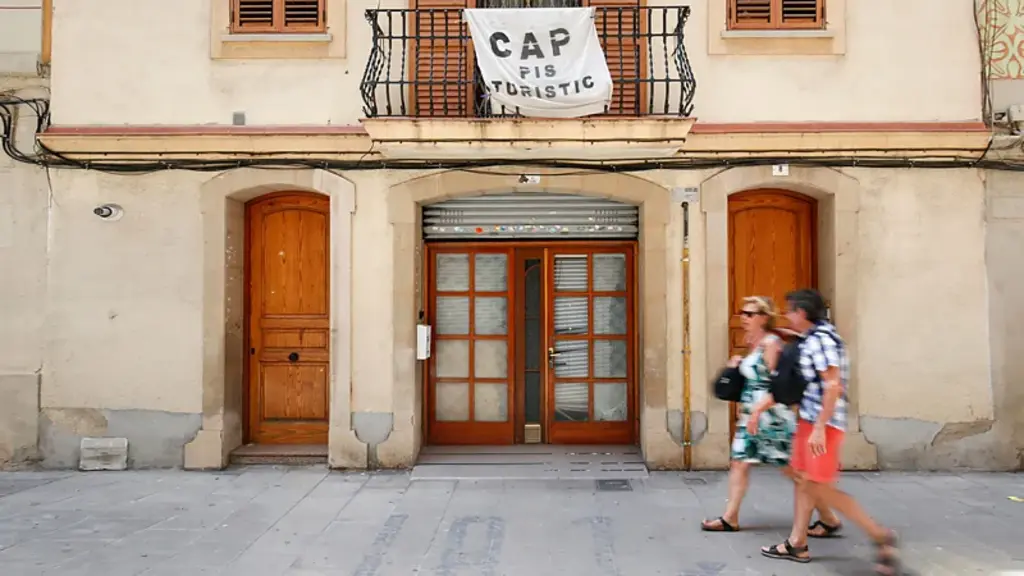A World Without Airbnb: Reimagining Travel and Hospitality
The travel business has been revolutionized by platforms such as Airbnb. democratizing the availability of lodging alternatives and providing travelers with distinctive, customized experiences. But without this disruptive power, how would our world look? Let’s examine the effects Airbnb’s demise would have on visitors, hosts, cities, and the hospitality sector.

Impact on Traveller
If Airbnb didn’t exist, travelers would have to depend more on conventional lodging choices like hotels, motels, and bed and breakfasts. This change could result in fewer options for lodging experiences and higher lodging costs. With reduced competition from Airbnb, hotels may decide to boost rates, increasing the cost of travel for travelers on a tight budget.
We would miss the distinctive experiences of Airbnb rentals, such as booking a stay in a stylish downtown loft or a charming farmhouse in the countryside. These visits frequently offer a more individualized experience, with hosts providing insider advice and a cozy ambiance that is unmatched by traditional hotel rooms. Furthermore, as many hotels are not built for long-term use, those searching for more extended stays may discover fewer possibilities.
Impact on Hosts
Airbnb hosting has grown to be a substantial many people’s supplementary source of income . Many hosts would lose this source of income if this platform disappeared. Those who have made investments in homes intended for short-term rentals would be especially severely impacted; they could have to make changes to their properties to accommodate long-term rentals or other purposes, or they might experience financial difficulty. There may also be changes in the real estate market. As the demand for short-term rental units declines, house prices in hot Airbnb locales may level out or possibly go down. For locals, this may result in more cheap housing, but it would also lower the earning potential for real estate investors.
Impact on Cities and Communities
Airbnb has had a big influence on how people travel to cities throughout the globe. By providing lodging in places where there are few hotels, Airbnb has contributed to a more equitable distribution of tourism by enabling visitors to discover off-the-beaten-path neighbourhoods. In the absence of Airbnb, tourists might concentrate more on urban areas and well-known tourist destinations, placing more demand on these places and decreasing visits to other thighbone dynamics of the neighbourhood could also change. Short-term rentals have caused significant changes in specific neighborhoods, such as increased rents and the eviction of long-term inhabitants. Reducing short-term rentals might contribute to stabilizing these neighborhoods by encouraging a feeling of community togetherness and permanency.
Impact on the Hospitality Industry
The conventional hotel sector, which includes Airbnb, would probably gain from its demise. Hotels could see a rise in demand and be able to raise prices and make greater investments in facilities and services if there is less competition. On the other hand, the absence of rivalry may also discourage innovation in the industry. Because it provides customized stays, flexible check-in schedules, and distinctive housing options, Airbnb has forced the hotel sector to change. Travellers have profited from the competition-driven innovation that has produced better service and a wider range of alternatives. If Airbnb didn’t exist, hotels may not feel as pressured to keep becoming better, which might result in a decline in the standard of service and inventiveness in the hospitality sector.
Regulatory Environment
A world without Airbnb would also see adjustments to regulations and zoning restrictions. In response to the difficulties presented by short-term rentals, cities have had to create new regulations to handle issues, including affordable housing, noise complaints, and effects on the neighborhood. Municipalities might divert their attention back to conventional zoning rules and hotel restrictions if Airbnb didn’t exist. Tax collections may also be impacted. Airbnb rentals are now subject to occupancy taxes in many locations, which is a significant funding source for local governments. The loss of these funds may affect municipal budgets, affecting infrastructure and public services expenditures.
Cultural Impact
Lastly, the cultural impact of Airbnb’s absence would be significant. Airbnb has fostered a sense of global community, allowing people to connect across cultures and geographies by sharing their homes. This cultural exchange has enriched the travel experience, offering insights into local ways of life that are impossible when staying in a hotel. The loss of this platform would mean fewer opportunities for travellers to engage deeply with the places they visit. The homogeneity of hotel experiences cannot replicate the personal touch and local flavor of staying in a local’s home.
Conclusion
Hotel and tourist dynamics would revert to more conventional patterns in a world without Airbnb. This would lessen the pressure on some neighborhoods and stabilize property prices, but it would also restrict the range and cost of available vacation lodgings. The conventional hospitality sector would profit at the expense of less innovation and increased traveler costs. We would need to find a way to enjoy the cultural diversity and customized experiences that Airbnb provides, which would alter our relationship with the locations we travel to. There would be a significant transformation in the travel industry, resulting in new possibilities and obstacles.






